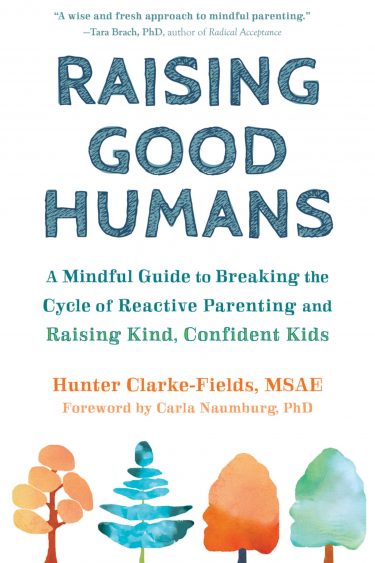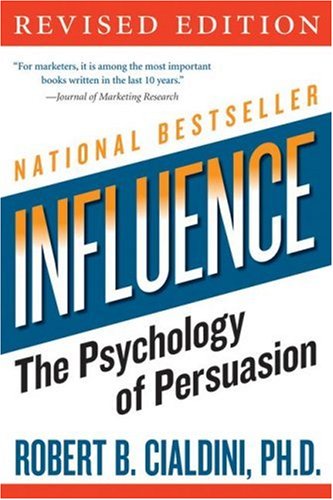 As the father of five kids, I take parenting very seriously. I used to read a lot of parenting books when my children were young, but I haven’t read any in recent years until stumbling upon Raising Good Humans by Hunter Clarke-Fields and Carla Naumburg
As the father of five kids, I take parenting very seriously. I used to read a lot of parenting books when my children were young, but I haven’t read any in recent years until stumbling upon Raising Good Humans by Hunter Clarke-Fields and Carla Naumburg
I didn’t like the workbook-like format and belabored thoughts on mindfulness, but I did enjoy several of the insights, especially as I’m increasingly raising teenagers over toddlers these days.
These are some of the lessons that stood out:
- You literally cannot access the rational part of your brain when your stress response is triggered.
- If you make your body seem less threatening, and speak in a calmer voice instead of yelling, you’ll have a less-stressed child—and you’ll get more cooperation.
- If we’re not fully present with our kids, we miss the chance to attune with their cues about what is happening for them under the surface. We might miss the signal that our children need a hug or help instead of more direction in this moment.
- Parental presence is key to optimizing the chance of your child having a life of well-being and resilience. “When you love someone, the best thing you can offer is your presence. How can you love if you are not there?”
- Instead of learning from the moment, their stress response bypasses the upper parts of the brain and causes children to fight back, talk back, withdraw, or run away. They are not “misbehaving” in these moments, they are experiencing a stress response.
- Feeling compassion for ourselves in no way releases us from responsibility for our actions. Rather, it releases us from the self-hatred that prevents us from responding to our life with clarity and balance.
- “Instead of teaching children how to consider their own needs in relation to the needs of those around them… we force children to do what we want because it seems more efficient, or because we lack the energy or skill to do it differently.”—Oren Jay Sofer
- “The greatest gifts you can give your children are the roots of responsibility and the wings of independence.”—Denis Waitley
- Simplify Schedules: Children (heck, all of us) need free time to balance out their activities, get to know themselves, and feel peaceful.
Rating: ★★★☆☆

Dreamworks Pictures
After first seeing the movie decades ago, I read Catch Me If You Can this month. It was a heck of a story and page-turner for sure. But I had an inkling while reading that it’s just too good, in this case outlandish, to be true.
In that way it seems as though author Frank Abagnale conned as many listeners and readers as the reported check and identify fraud he alleges to have committed, according to Wikipedia. Multiple reports state he didn’t come close to cashing $2.5 million in bad checks, that his exploits as a fake pilot, doctor, lawyer, and professor are grossly exaggerated (if not patently false), and that he never evaded police like he claims or worked for the FBI after being caught. “The man is not an imposter, he is a liar,” said one US Attorney General.
For that, I award it ★★★☆☆. These were my favorite passages:
- It’s not how good a check looks but how good the person behind the check looks that influences tellers and cashiers.
- “You’ll learn, Frank, that when you’re up there’re hundreds of people who’ll claim you as a friend. When you’re down, you’re lucky if one of them will buy you a cup of coffee. If I had it to do over again, I’d select my friends more carefully.”
- “It’s not what a man has but what a man is that’s important… As long as a man knows what he is and who he is, he’ll do all right.”
 Humans are usually influenced in one of six ways, argues Robert Cialdini in Influence: The Psychology of Persuasion. I suspect there are a lot more subtle and intricate ways to influence, but I think Cialdini certainly covered the highlights in his popular book published in 1984. They are as follows:
Humans are usually influenced in one of six ways, argues Robert Cialdini in Influence: The Psychology of Persuasion. I suspect there are a lot more subtle and intricate ways to influence, but I think Cialdini certainly covered the highlights in his popular book published in 1984. They are as follows:
- Reciprocity. Humans feel obligated to return favors and gifts, even unwelcome ones—which partially explains why their are so many free samples in life. Hence, giving away something for free is an effective way to influence. You can avoid this influence by distinguishing uninvited gifts from welcome ones. For example, “I didn’t want this free food sample to being with, so I won’t feel obligated in giving you anything in return if I take it. Another thing to beware of are unwelcome concessions; say a door-to-door salesman that asks you to donate a large sum to a cause you aren’t interested in, only to lower the donation amount in the hopes you’ll donate something. The takeaway: Don’t donate unless you want to, not because someone is seemingly compromising. Continue reading…
 As the father of five kids, I take parenting very seriously. I used to read a lot of parenting books when my children were young, but I haven’t read any in recent years until stumbling upon Raising Good Humans by Hunter Clarke-Fields and Carla Naumburg
As the father of five kids, I take parenting very seriously. I used to read a lot of parenting books when my children were young, but I haven’t read any in recent years until stumbling upon Raising Good Humans by Hunter Clarke-Fields and Carla Naumburg

 Humans are usually influenced in one of six ways, argues Robert Cialdini in
Humans are usually influenced in one of six ways, argues Robert Cialdini in